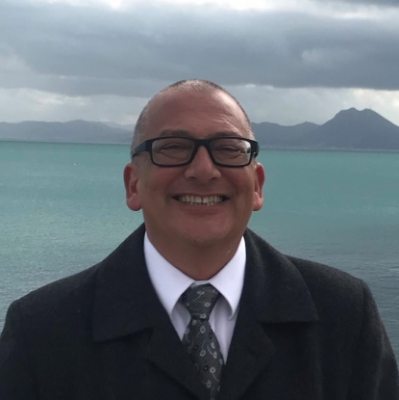Reading the Sun, Moon, and Stars: Intergenerational Literacy
Happy October from the University of North Carolina at Charlotte! This month, my Dad’s turning 90 and for this blog post I’d like to share one of the stories he’s told us about growing up on the island of Guam during World War II. This one is about my Uncle Juan learning when to plant corn. It goes like this:
Just a few months before the outbreak of the War in the Pacific, my grandfather died, leaving behind his widow and eight children. Juan, 13, suddenly became the man of the family. With the help of neighbors, Juan cleared a small piece of land to plant the crops that they would count on to feed the nine of them.
But Juan didn’t really know anything about farming. Once the land was prepared, the question was: “When to plant?” The neighbors planted right away. And he could see the shoots of the young corn. He visited his mother’s father, an expert farmer in a neighboring village, for advice.
The old man looked up into the sky and replied, “Not yet, Juan.”
When the neighbors started seeding, he returned to the elder with the same question. The response was the same, “Wait. Not yet, Juan.”
Finally, one day the old man told him, “Plant now.”
Juan’s crop flourished; the family survived with a surplus to share.
What the old man was doing was reading—the sun, the moon, the stars. These were the “texts” that he was decoding to pinpoint the just-right-time to plant. He was, as I wrote about last month, reading with purpose. In this case, the Salas family’s survival depended on his reading it right.
Recognizing Funds of Knowledge
Luis Moll famously called this sort of high-value intergenerational literacy “funds of knowledge.” We know now that students from all sorts of communities and households bring funds of knowledge to the classroom. However, as I explained in August, the literacy repertoires that students (especially minoritized students) have are often discarded because of institutional biases of counts as “literacy.”
Recentering our curricula and lessons in ways that recognize, celebrate, and build off students’ funds of knowledge can begin with the simple recognition that literacy is much more than the standardized testing that has come to define so much of the broader project of public K–12 schools and schooling.
Tapping Into Funds of Knowledge
Here’s a practical application of how we might begin understanding the range and depth of our students’ funds of knowledge.
Initiate a discussion with your students about the difference between school learning and home/community learning. This might begin with two columns—one focused on things we’ve learned in classrooms and the other on things we’ve learned at home or in our extended communities. In terms of K–12 spaces, teachers are the first points of contact for much of what we study. Outside of school, our mothers and fathers, siblings and extended family, or maybe even neighbors are also our teachers.
Have students talk about and compare the sorts of things they’ve learned to do well outside of school, who taught them, and why it was important for them to learn how to do whatever it was it in the first place.
As a follow-up, have students conduct a short interview of their family or community “teacher”—what it is they know how to do and why it is important for them to pass it along. Bring the interview data to the class and share—or even better, invite those elders or experts to the class to share their intergenerational knowledge.
So, Happy 90th Birthday to my dad, Francisco Unpingco Salas! And Si Yu’os Ma’åse’/Thank You! to my Uncle Juan and maternal great grandfather, whose capacity for reading the sun, moon, and stars grew a field of corn and saved a family.

